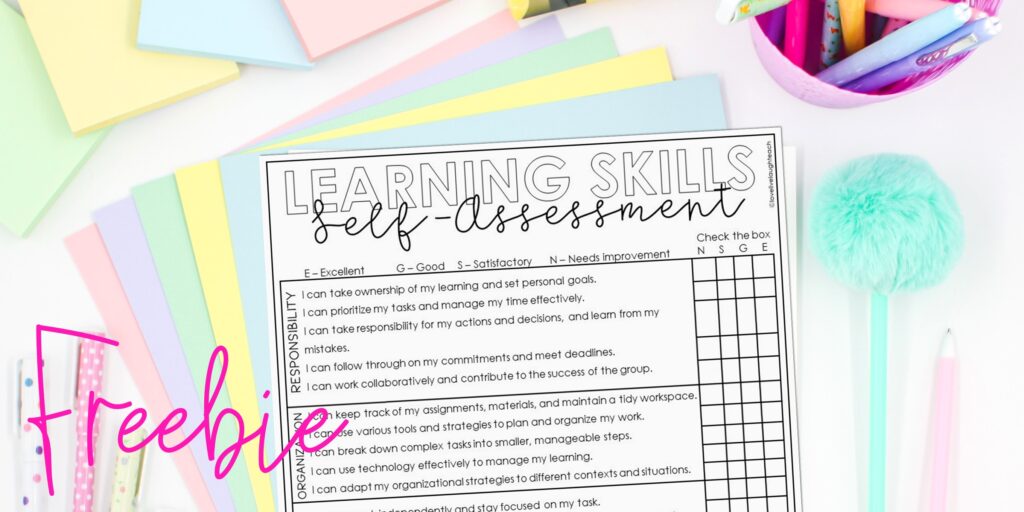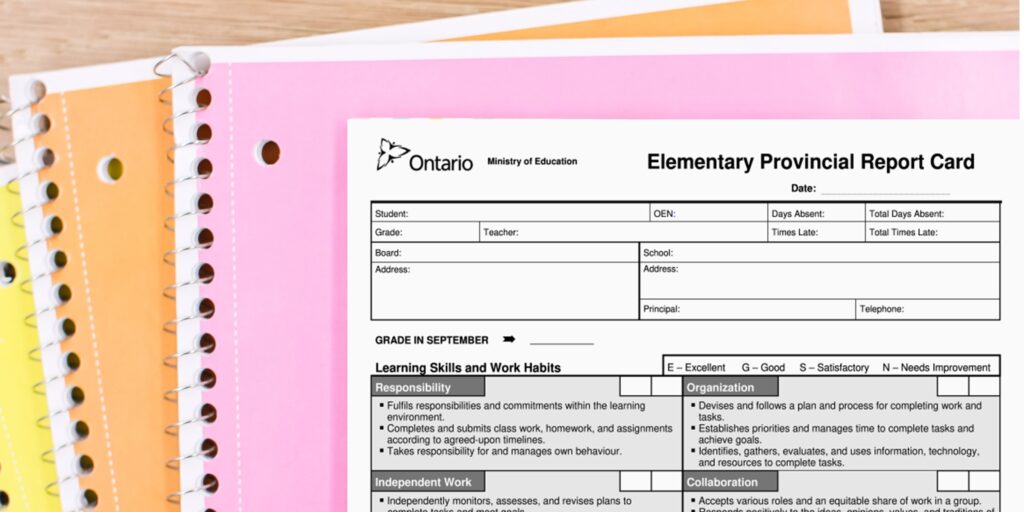
I can’t believe it’s that time again! School is quickly drawing to a close which means warm weather, fun activities, and report cards! When I was a newer teacher, report cards always intimidated me and I know many teachers feel like it is a daunting task. Report cards are our way of communicating how students have progressed throughout the year and can be a great way to show student growth! Whether you are new to report cards or a seasoned expert, here are my top tips for report card writing.
Start Early
One of my best tried and true tips for writing report cards is START EARLY! The end of the year always gets crazy busy with testing, field trips, projects, etc. If we put off thinking about and starting our report cards until the last minute, we won’t be able to put the time and effort into them that is necessary. I always start thinking about my report cards about a month or so before the end of school. While I may not have final grades at that point, I can start thinking about individual students and their growth throughout the year. I can add grades in as I get them and work on them little by little.
I like to set aside a little bit of time each week to work on my report cards. The phrase “You can’t eat an elephant all at once, but bite by bite,” is a great way to go about getting your report cards done! So choose a day each week and set a certain amount of time where you can focus on report cards. Start about a month ahead of time and I promise, the “elephant” that is report cards will become manageable!
Begin with Learning Skills
Learning skills always take the longest because it is the most comprehensive part of the report card. They provide assessment of a student’s overall development and progress. While grades are an important measure of a student’s academic performance, learning skills provide insight into the student’s ability to learn, work independently, collaborate with others, manage time and resources effectively, and think critically. Because of this, I always start with learning skills when writing reports as they can be time consuming. It is something that I have been keeping track of throughout the year and that I can work on piece by piece throughout the last month or so.
When writing learning skills, it’s also important to provide a balanced assessment of the student’s strengths and weaknesses. Highlight both areas of success and areas for improvement. Last, since Learning skills are an important part of a student’s overall development, providing specific feedback can help the student continue to grow and improve in these areas.
You can grab this FREE Learning Skills Self-Assessment in my library by clicking here.

Subject Areas: Write A Level 3 Comment
In Ontario, we have levels of understanding that are used to assess and evaluate student achievement. These levels of understanding are outlined in the “Growing Success” document and are used to determine a student’s level of proficiency in each of the four categories of achievement: knowledge and understanding, thinking and inquiry, communication, and application. The levels identified as 1, 2, 3, or 4 with a level 3 Indicating that the student has a good understanding of the concepts and skills being assessed. They can apply their learning in a variety of contexts with some independence and are meeting the grade level expectations. The goal is to have all students reach a level 3 or above.
When writing my subject specific comments, I like to have a standard level 3 comment that I can use for all of my students that achieve a level 3 in each of the subject areas. This makes report cards much quicker as I can input a set comment that communicates to parents and students that they are proficient in each subject area.
Then for my students who receive a 1, 2, or 4 I can modify the qualifiers in the comment to specifically show that students’ level of understanding. For my students who achieve a level 1 and 2 I will discuss what parts of the curriculum that they did understand and what specific areas they were struggling with. Then with my students who achieve a level 4, I add on what specifics they were able to achieve above and beyond that subject. Because I sometimes have fewer students who achieve 1, 2, or 4 this helps to streamline the process.
Use Clear Language and Be Authentic
When writing report cards, it is essential to include comments so that parents and students truly understand what their grades mean as far as their mastery of curriculum and their growth. This can be an easy one to skip because it can take time, but I promise, the time is worth it. When writing comments you need to make sure that they are clear. Nothing is more frustrating to parents and students when they can’t read or understand your comments. Write in student friendly language so that everyone involved with reading the report card clearly understands what is going on.
It is also important to make sure that all comments are authentic. You don’t want to be unkind in your comments, but it is crucial that you don’t “sugar-coat” or skip out on important aspects of what a child has or has not learned. Authenticity is always my first rule with report card comments. You can always be kind AND authentic. Lastly, it is important that your comments are personalized. While you don’t have to make personalized comments on every part of the report card, students and parents can tell when you have written the same thing for them as everyone else. Make sure that you use the student’s name and a few specifics in some of the comments throughout the report card so that it feels personalized.

Proofread
I also recommend that you always use an online tool to proofread all of your comments before putting them on the report card. The last thing that you want is to communicate something incorrectly to parents and students because of an error. It always takes away from clarity, when your comments have incorrect grammar, spelling, or punctuation. I like to use Grammarly because it has a free version and is quick and simple. There are other great online programs out there as well, and while none of them is perfect they can make a difference! I always proofread the comments with an online tool and then once more myself before handing in the report cards to my administrator.
No Surprises
I think of any of my suggestions, this is probably the most important. You don’t want report cards to have any surprises on them. The last thing you want at the end of the year is frustrated parents and students who are completely surprised by their report cards. It is essential to have ongoing communication with parents and students throughout the year about how students are doing in their learning. This will eliminate any unhappy surprises when report cards roll around.
If you haven’t been communicating with parents throughout the year, I would suggest reaching out to them prior to sending report cards if possible. Especially those students who are not meeting grade level expectations. I have found that a conversation about low grades is always better received than a low grade on a report card with no conversation. Then next year, begin early! Remember communication with parents and students is key!
Go Get Them Done
The end of the year quickly approaches and a wonderful summer break is ahead! Report cards may seem daunting, but use these quick tips and get them done! We are almost there friends, the count down is on!










